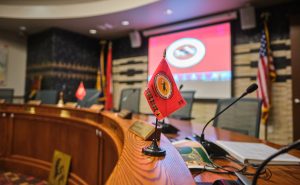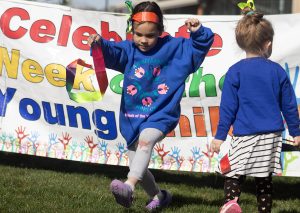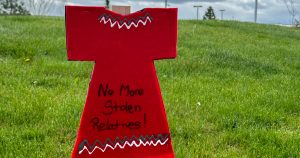By CHRIS AADLAND
Reporter
MISSION – Nixyáawii Community School leaders are considering changes to its student cell phone policy after a recent fight – the first in the school’s five-year history, according to its principal – was sparked by cyber-bullying.
The mid-December incident, which was recorded and shared on social media, according to one parent whose child was involved, raised questions from some about what the school is doing, or should be doing, to ensure students feel safe and that administrators and staff are taking proactive steps to prevent incidents like major fights or bullying.
Discussions started when parents of some of the students involved – the mother of a student who was attacked and hurt, and the father of the two students who were arrested for their alleged participation in the fight and spent the weekend in jail – presented testimony during the public comment portion of the Dec. 18 NCS School Board meeting.
Social media posts and cyber bullying sparked the fight and came amid ongoing cell phone use problems, which the school will begin to address in the coming weeks through a new policy, NCS Principal Ryan Heinrich said in an interview.
“This was our first fight in five years, so it does not happen very often,” he said. “Just the way it did was weird.”
It also coincidentally occurred before, but on the same day, the school hosted Brooks Gibbs, an anti-bullying presenter to speak to its students, he said. Because of the incident earlier in the day, Heinrich said Gibbs was asked to spend extra time speaking about cyber bullying and how to respond to it.
Gibbs, who has also authored books about bullying and emotional resilience, also spoke at Pendleton High School on Dec. 13 and two other local schools at the request of the Confederated Tribes of the Umatilla Indian Reservation (CTUIR), which hired him.
The two parents who spoke in front of the school board said the incident raised questions about whether the school needed more staff to monitor students and de-escalate situations that could lead to fights and what steps could be taken so all students feel safe at school and comfortable with reaching out to school staff with concerns, like bullying.
They also suggested that they believed student access to their cell phones in school and social media disagreements were a factor in the incident that needed to be addressed so it doesn’t fuel future confrontations.
“This is hard. I still feel tired and sad right now,” the father of two of the students involved said at the meeting. “I just hope… this doesn’t happen again.”
The fight was then discussed further in an executive session, a meeting closed to the press and public.
“We appreciated you coming to us and we will take your recommendations, and gather them, and I’m sure we’ll discuss further,” NCS School Board Chair Ashley Picard said at the meeting after the parents’ comments.
While it was the first fight in the school’s history, Heinrich said, it illustrated the need to address cell phone use during the school day and the distractions it causes. He said he already takes phones away as punishment for breaking rules or being tardy and that is considered the school’s “biggest punishment.”
“The worst punishment for a kid is to lose their phone for a day,” Heinrich said.
Although he said it would be impractical to monitor individual phones and social media activity for bullying or to foresee potential conflicts, stricter rules on when and where phones can be used during the school day were necessary.
A new policy developed with input from staff, with support from the school board, is expected to be unveiled in the coming weeks, Heinrich said.




